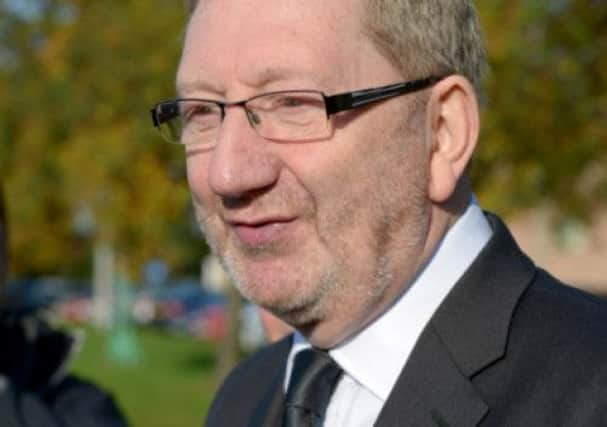McCluskey defends Unite’s ‘fighting’ tactics


He said the union was “not retreating” in the face of criticism of organised protests outside the homes of bosses.
A director of Grangemouth’s owner, Ineos, said he feared for the safety of his wife and two children when 30 Unite protesters turned up at his house last month.
Advertisement
Hide AdAdvertisement
Hide AdBut Mr McCluskey told fellow union officials yesterday that Unite was sending a message to the “bad bosses that they have nowhere to hide”, following the dispute, which jeopardised the future of the petrochemical site.
The Unite general secretary insisted leverage had “worked” previously, and highlighted other disputes where the union had used the tactic. Delivering a speech to Unite members yesterday, Mr McCluskey said such protests had helped protect jobs and employment rights.
He also claimed Unite was being targeted as a “proxy for smearing the Labour Party”, over allegations about the union’s behaviour in the Falkirk selection controversy.
Labour leader Ed Miliband is facing calls to reopen an inquiry into claims that Unite signed up people without their consent in order to ensure its favoured candidate, Karie Murphy, was selected to stand for the party at the next general election.
Mr McCluskey defended what he said was Unite’s “fighting trade unionism” in disputes such as Grangemouth.
He said: “Of course, there is another agenda behind these attacks, too. We are a proxy for smearing the Labour Party and Ed Miliband, since the same elite is now worried that a Labour government, which may itself not play by the old rules, is a possibility.”
David Cameron told MPs last week that the UK government will consider acting to stop cases of industrial intimidation, following the protests outside bosses’ homes.
He said he was shocked by allegations that children of executives had seen “wanted” posters put through their letterboxes, while their neighbours had been told they were “evil”.
Advertisement
Hide AdAdvertisement
Hide AdHowever, Mr McCluskey denied children had been targeted. “The silent, peaceful protests in the leafy suburbs of a few directors are part of our basic human rights which include freedom of expression,” he said.
“They are as old as democracy – free speech and the right to peacefully demonstrate. For that, our members have been described as thugs. It is, at any event, a lie. These protests were peaceful, mostly silent, and of course had nothing to do with intimidating families, children, or anyone. This union is not retreating from leverage, or from the right to peaceful protest.”
Mr McCluskey also suggested leverage tactics could be used in future disputes similar to Grangemouth, where workers had to accept changes to pension, pay and agree not to strike.
He said: “The most important thing to say is this – leverage has worked. Leverage has won. It won at Honda, halting trade union derecognition and saving the convener’s job. It won at London Buses, alongside strike action, in securing an Olympic bonus.
“Leverage is about telling bad bosses that they have nowhere to hide, challenging their conduct with shareholders, with clients and customers.”